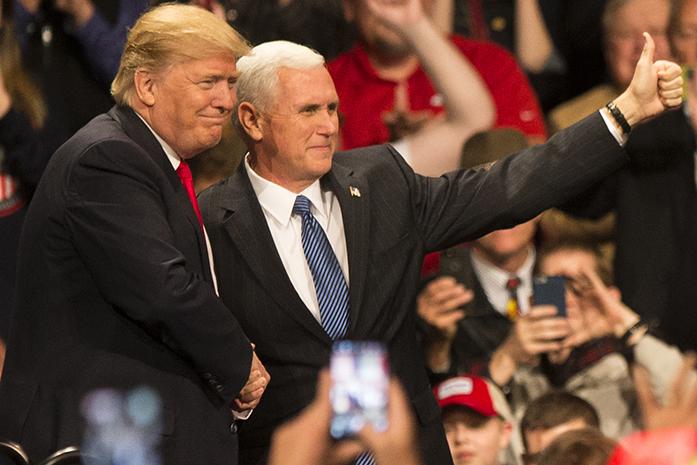By Zach Weigel
We can no longer call Donald Trump president-elect because he is set to be inaugurated as the 45th President of the United States today.
And while some of us are excited to see what will come of America under new leadership, others are less optimistic. Nevertheless, regardless of how we each feel about President Trump, one thing is certain: Trump isn’t traditional in any sense, especially when it comes to political communication.
Contrary to previous presidents, Trump’s preferred mode of communicating stands in stark contrast to outgoing President Obama’s penchant for reading from a teleprompter to an audience. Perhaps this way of communicating via speeches from a lectern simply felt more comfortable for Obama, given that he was a professor and senator before his stint as president. Then again, perhaps Obama chose this method because it is the traditional way for leaders to convey their thoughts to the public.
Before television, politicians got their message across via the radio, such as Franklin D. Roosevelt’s “fireside chats.” Once television took off, however, press conferences became the primary way to communicate. And up until recently, press conferences and televised interviews have remained the conventional way for a president to connect with the people. Now, however, all indications point toward Trump using the social-media platform of Twitter as opposed to press conferences and interviews.
Maybe this is just the nature of the times. Could it be that Trump is merely adapting to society? Moreover, could this possible change in the mode of communication be a wise move? If you set aside the rhetoric of Trump’s Twitter messages for a minute, in today’s world, it makes perfect sense for him to use Twitter. How many people actually watch the entirety of an interview or a press conference these days? Surely that number is on the decline, beause it seems our fragmented society places precedence on breaking everything down into headlines, phrases, memes, and gifs.
Notwithstanding, being president is an important job, and while we may not like the thought of dumbing down matters concerning our country and its people to Twitter punchlines, an argument can be made that it is quite a smart move by Trump. Rather than having to craft all of his thoughts into professional messages, he can craft his own unfiltered messages. And Trump’s blustery, conversational vocabulary level makes his messages easily understandable to the average person, effectively cutting out the middleman (media) between politicians and people.
So although it may appear that Trump’s love for Twitter reflects poorly on the esteemed office of the president, this abrupt shift in political communication actually works for a number of reasons. Not only does Twitter make presidential messages more accessible, it also suits Trump superbly, given that he doesn’t have experience in crafting formal messages the way other politicians normally do. To boot, it is likely that Trump enjoys cutting out the media, which he has admitted to resent, by streamlining his messages via Twitter.
As president, Trump will still have to confront the same responsibilities of his predecessors, yet it seems he will choose to do so directly by tweeting out his unfiltered thoughts for numerous reasons. Only time will tell whether this maneuver will be successful, but for the time being, it seemingly serves to benefit Trump and the average person while eradicating the conventional norms associated with presidential proclamations.



